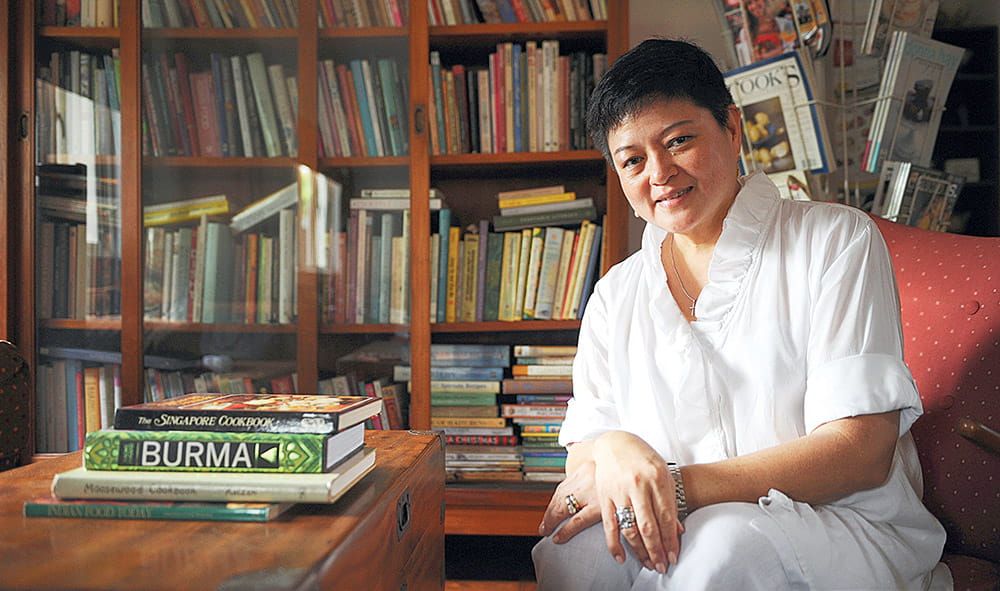Stories > Leave No One Behind
Leave No One Behind
How does a society foster greater inclusiveness of those who are disabled? ANITA FAM, chairperson of the third Enabling Masterplan Steering Committee, weighs in on the issue.
PHOTOS SPH LIBRARY

Anita Fam is vice-president of the National Council of Social Service, the national coordinating body for voluntary welfare organisations in Singapore, and chairperson of the Steering Committee for the third Enabling Masterplan. The former lawyer is an active volunteer in the social services sector and serves on the board of various public organisations, including the National Healthcare Group and the Assisi Hospice, of which she is chairman.
aking place on Aug 9 every year, Singapore’s National Day Parade is always a spectacle to behold.
This year’s event featured a segment where more than 150 special needs participants hand-signed two of the country’s favourite songs – Home and Count On Me, Singapore – as well as the Singapore Pledge. It sent out a beautiful message that these individuals, given the same opportunities as everyone else, have much to contribute. It is time to recognise their talents.
The idea of inclusiveness is behind the push to include individuals with special needs in our society. It is one of the main objectives that the third Enabling Masterplan Steering Committee, of which I am chairperson, is focusing on. Another objective is providing caregivers with support by helping them, for instance, with care-planning for their disabled loved ones.
The Enabling Masterplan is a five-year roadmap that charts the development of policies, programmes, services and other forms of support for people with disabilities in Singapore. It helps the government prioritise its resources to support the sector, such as by building disability and education infrastructure, and initiating partnerships with the private sector. The third masterplan, to be presented to the Singapore government later this year, will guide the development of programmes and services in the disability sector from 2017 to 2021.
Another way in which we hope to foster inclusiveness of the disabled is through dialogue. One example is the Arts and Disability Forum held in March as part of the Singapore International Foundation’s Arts For Good initiative. During the forum, I moderated a roundtable themed, “Visioning Arts and Disability in Singapore: Policy, Access and Awareness”.
The arts is a useful platform for raising public awareness about disability. It has the potential to change mindsets and expectations. This roundtable allowed us to start thinking about how we can leverage the arts to foster inclusiveness.
“The arts is a useful platform for raising public awareness about disability. It has the potential to change mindsets and expectations.”
Anita Fam, vice-president of the National Council of Social Service
I came away feeling enriched and excited by the collaborations between the two sectors in other countries. It made me realise there is still much to be done in Singapore, and I plan to speak to Singapore International Festival of Arts (SIFA) director Ong Keng Sen to see if such collaborations and performances can be incorporated into future SIFA programming, to provide the disabled with more representation in our arts and culture scene.
We already have one great example in Singapore of the arts and disability sectors merging. The Purple Symphony, established in 2015, is an inclusive orchestra made up of musicians with and without special needs, a perfect representation of arts for good.
CHANGING MINDSETS
Another important thing I feel Singaporeans can do to build a more inclusive society is to be open-minded and not pigeonhole people.
We can start, for example, by employing people with disabilities. They are loyal and serious workers who will work hard and not job-hop. Singapore’s National Library Board, which manages the public libraries and the National Archives, is already employing individuals with autism at its Digital Services Centre.
Today, we are in a better place than before as a society.
Parents used to hide their disabled children away from curious eyes, but now, they have assistance and no longer feel ashamed of their children. Many are very supportive and refuse to allow their children to be handicapped by their disability.
This is a mindset that we need to adopt when interacting with individuals with special needs. We can see their many admirable attributes, such as grit and toughness of character. Society can afford to draw more inspiration from them.
One such inspiration is Singapore navy serviceman Jason Chee, who has emerged victorious – literally – from his ordeal of losing both legs and his left arm in a ship accident in 2012. He was part of the men’s table tennis team that won a gold medal at the ASEAN Para Games 2015.
If he can achieve so much, we ablebodied people have no excuse not to live well.
